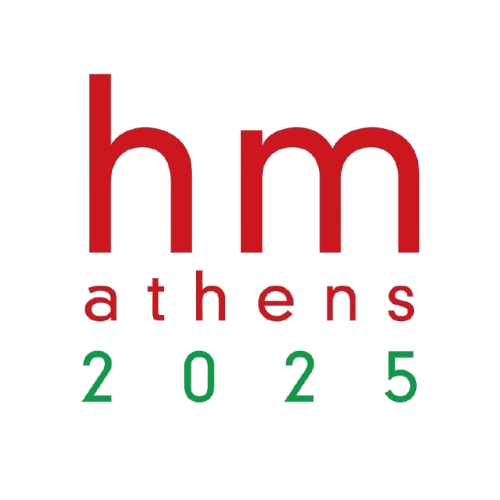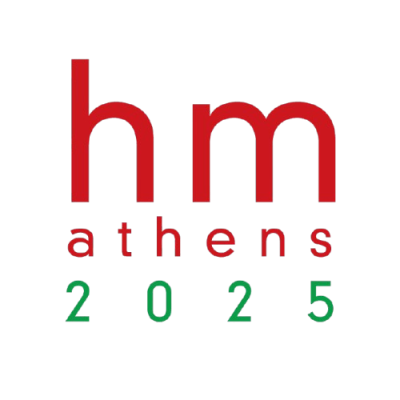Historical Materialism Athens 2025: Call for Papers
Historical Materialism Athens 2025
Organising in the Capitalocene: Labour and the Struggle against Disaster and Genocide
24-27 April 2025, Panteion University Athens
We now live in a world of genocide and disaster. That we are witnessing the Israeli war machine destroying Gaza and attacking Lebanon while the Earth is crossing one ‘climate-change’ threshold after another suggests that catastrophe is becoming the ‘new normal’ of contemporary capitalism.
From orchestrating a genocidal project to escalating inter-imperialist rivalry and the militarisation of societies, from the cynical refusal to act against the worst aspects of an environmental collapse (no longer impending but actual) to treating the vast majority of the global population as an expendable factor of production and to openly endorsing all sorts of patriarchal and racist positions, the reality of contemporary capitalism is unbearable. It makes radical social change from below more urgent than ever.
If Capitalocene – a term that specifies the cause of our predicament- implies transition to a historical period where capital turns into a force solely of destruction, without any claims to some ‘positive’ hegemonic project, then collective resistance is the sole barrier to extinction. The question is how to organise this resistance, how to make it capable of reversing processes of destruction that now seem almost unstoppable. Such an endeavour is all the more difficult in the current political conjuncture. Following a decade of popular uprisings and anti-austerity political projects occasionally engaging governmental power, the protracted crisis of strategy in the Left has now turned into a wholesale strategic impasse that allows ever newer versions of far-right and ultra-libertarian projects to present themselves as credible responses to the anxieties of the popular masses.
We must not forget that at the heart of this complex ensemble of antagonisms and conflicts, which turn the Capitalocene into a global disaster zone, remains labour, class, and exploitation. Against efforts to present the capitalist economy as an endless flow of commodities and assets, as a process of self-produced (and in times of crisis, self-destroyed) value, capitalism must be seen for what it is: a system of exploitation of living labour. In the vortex of new for-profit technologies and the further precarisation and intensification of labour, as new waves of struggle are met with new waves of repression, the reality of labour tends to be sidelined. And yet, only capital’s drive towards the full exploitation of labour, in all its aspects, can explain both the unstoppable depletion of anything identified as ‘resources’ and the unleashing of all forms of violence against societies and nature.
In terms of exploitation, in terms of struggle and organising, labour provides the common ‘red thread’ that explains the dynamics of contemporary capitalism and imperialism while pointing to how we can bring together social forces, movements and resistances into a common project of survival and emancipation. It is labour’s resistance and struggle that really makes a difference in crucial moments: from refusing to load weapons for the Israeli war machine to exposing the devastating impact of fossil capitalism, from creating spaces of solidarity for the subaltern to forming movements that battle capital’s incursions in everyday life, from cities to the countryside.
In saying this, we do not forget the complex and multi-layered character of the contemporary condition of subalternity, the intertwining of production and social reproduction, as well as the many intersections between labour, gender, race, ethnicity, ableness and nature; nor do we deny the relative autonomy of diverse struggles in their proper conjunctural singularity. We see the need for a united front of struggles than cannot be limited to labour, and the urgency for a new internationalism against the cynicism of contemporary imperialism and settler-colonialism. All the above remain connected to essential aspects of a politics of labour -a politics that sees social transformation from below as a labour of struggle, solidarity, and care. Organising is, precisely, this labour of struggle, solidarity and care. By organising, we fight for unity and against re-emerging tendencies of disaggregation, fragmentation and despair. Organising is the answer to capital’s ability to act strategically and coordinate disaster through the State. Organising is the way to create laboratories of new forms of militant intellectuality and strategy, spaces of prefiguration and experimental terrains for new social configurations.
The Critical Marxist tradition provides the framework for this discussion, and for revisiting strategic challenges that remain open questions, by means of renewing collective and militant thought. Historical Materialism Athens offers a meeting place for sharing perspectives on organising against capital’s piling disasters, against the subjugation of labour, and against the genocide suffered by the Palestinian people. Fostering an egalitarian ethos among delegates and rejecting dogmatism, Historical Materialism Athens welcomes comradely dialogue and debate to nurture theoretical advances but also collective projects.
To that end, Historical Materialism Athens 2025 welcomes paper and panel proposals on
- the articulation of genocide and extinction as manifestations of the violence inscribed at the core of contemporary capitalism
- the persistence of racialised forms of exploitation, expropriation and oppression, up to and including genocide
- the contemporary condition of labour: changes in the labour process, new forms of precarisation, the push for constant surveillance, and the social and political composition of labour
- the challenges faced by efforts to rethink the possibility of a politics of labour as an antagonistic political practice and how they can be overcome
- the new articulations between technology, capital and labour, including the multiple challenges posed by Artificial Intelligence
- the contemporary landscapes of workers’ resistance in all its expressions; forms of collective organising and struggle, their broader impact, obstacles and prospects
- the paths towards building new forms of unity of the subaltern in the latter’s intersectional constitution through class, gendering, racialisation, ableness; thinking across exploitation and oppression in concrete social contexts
- the gains of fascism against the backdrop of labour movements’ suppression and ways to undo these gains; the new ‘pact’ between fascism and capital
- Imperialism, geopolitics, and labour in the 21st century
- Marxist strategy against capitalist strategy from State politics to everyday life
Whilst we encourage papers and panels that address these themes, as always, the Historical Materialism conference seeks to provide a space for critical Marxist theory and research across the globe and a range of disciplines and interests, so submissions on other themes are welcome.
In addition to the central thematic of this year’s conference, we welcome paper and panel proposals for the following streams (CfPs are issued separately):
- Marxist Feminism, Gender and Sexuality Stream
- Socio-Environmental Stream: Towards a Radical Eco-Socialist Praxis
- Technology, Automation, and Resistance
- Migration and Refugees
Individual proposals for papers and panels must include: i) Names of participants with e-mails, and institutional affiliations. Where there is more than one participant, we require a clear indication of a corresponding author. ii) Title and abstract of the paper or panel. In the case of a paper, please submit an abstract of no longer than 300 words. In the case of a panel, please submit an overarching description of 300 words, names and details of each participant and abstracts for individual papers. Ditto for book launches/panels.
DEADLINE FOR HM ATHENS 2025 EXTENDED TO JANUARY 13
Partial submissions may be rejected.
Submit your paper or panel proposal in the following form
For all inquiries contact: [email protected]


